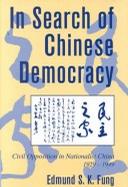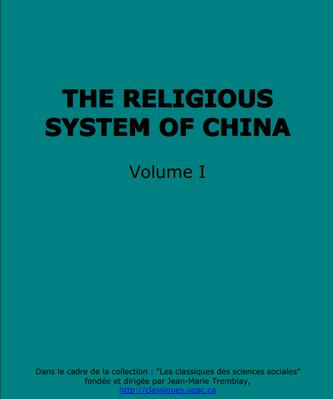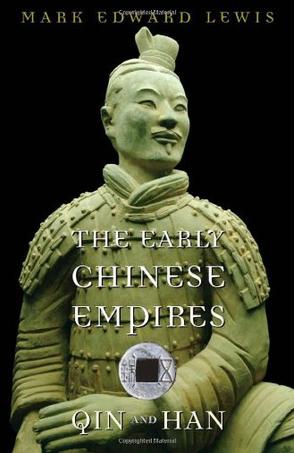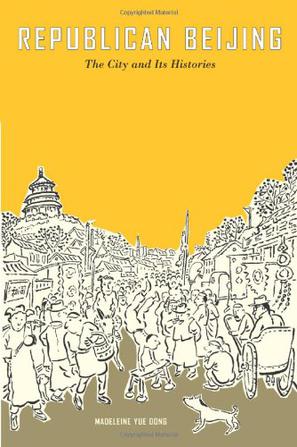-

In Search of Chinese Democracy
Edmund Fung examines an important phase of development in China's long quest for democracy. The momentum for democracy, he contends, grew strongest between 1929 and 1949 through civil opposition to the one-party rule of the Guomindang. The Nationalist era contained the germs of a reformist, liberal order, the legacy of which can be seen in the pro-democracy movement of the post-Mao period. This book fills an important gap in the historical literature on Chinese intellectuals between May Fourth radicalism and the Chinese Communists' accession to power. -

The Religious System of China
Groot(高延),荷兰汉学家和宗教史学家。《中國宗教體系》此書涉及中國宗教體系中的遠古形式、 變革、歷史、現實層面、姿態、風俗以及社會制度。一共有6卷,英文版。 The ancient forms, evolution, history and present aspect, manners, customs and social institutions connected with the religious system of China. -

中国古代的家与国家
-

The Early Chinese Empires
In 221 B.C., the First Emperor of Qin unified the lands that would become the heart of a Chinese empire. Though forged by conquest, this vast domain depended for its political survival on a fundamental reshaping of Chinese culture. With this informative book, we are present at the creation of an ancient imperial order whose major features would endure for two millennia. The Qin and Han constitute the "classical period" of Chinese history - a role played by the Greeks and Romans in the West. Mark Edward Lewis highlights the key challenges faced by the court officials and scholars who set about governing an empire of such scale and diversity of peoples. He traces the drastic measures taken to transcend, without eliminating, these regional differences: the invention of the emperor as the divine embodiment of the state; the establishment of a common script for communication and a state-sponsored canon for the propagation of Confucian ideals; the flourishing of the great families, whose domination of local society rested on wealth, landholding, and elaborate kinship structures; the demilitarization of the interior; and the impact of non-Chinese warrior-nomads in setting the boundaries of an emerging Chinese identity. The first of a six-volume series on the history of imperial China, "The Early Chinese Empires" illuminates many formative events in China's long history of imperialism - events whose residual influence can still be discerned today. -

Republican Beijing
Old Beijing has become a subject of growing fascination in contemporary China since the 1980s. While physical remnants from the past are being bulldozed every day to make space for glass-walled skyscrapers and towering apartment buildings, nostalgia for the old city is booming. Madeleine Yue Dong offers the first comprehensive history of Republican Beijing, examining how the capital acquired its identity as a consummately "traditional" Chinese city. For residents of Beijing, the heart of the city lay in the labor-intensive activities of "recycling," a primary mode of material and cultural production and circulation that came to characterize Republican Beijing. An omnipresent process of recycling and re-use unified Beijing's fragmented and stratified markets into one circulation system. These material practices evoked an air of nostalgia that permeated daily life. Paradoxically, the "old Beijing" toward which this nostalgia was directed was not the imperial capital of the past, but the living Republican city. Such nostalgia toward the present, the author argues, was not an empty sentiment, but an essential characteristic of Chinese modernity. -

Morality and Power in a Chinese Village